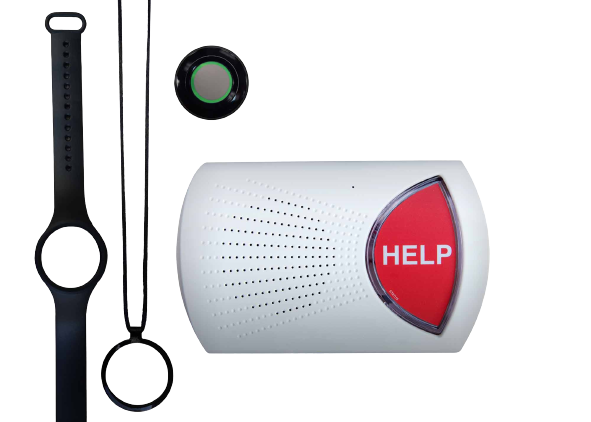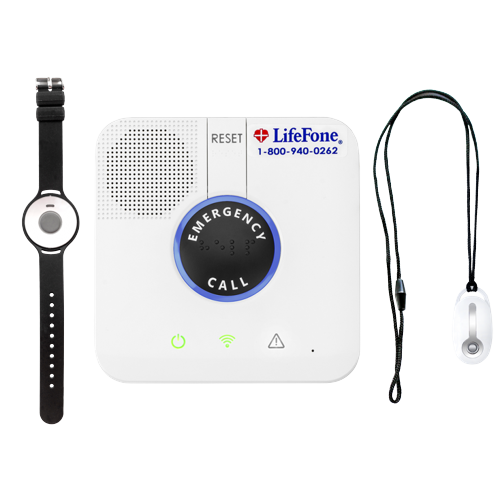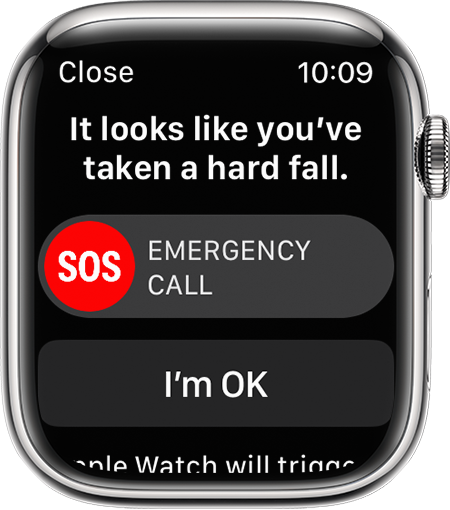Medical emergencies can happen unexpectedly, which is why it’s important to have a plan in place to respond to them. One such plan that has become increasingly popular in recent years is the use of medical alert systems. Medical alert systems are devices designed to provide immediate access to emergency assistance in the event of a medical emergency, fall, or any other situation that requires assistance.
Let’s explore the various benefits of using medical alert systems, ranging from safety and security to health, lifestyle, and cost benefits. This aims to help readers understand the advantages of medical alert systems and make informed decisions about their use.

Safety and Security Benefits
The numerous safety and security benefits of medical alert systems provide peace of mind for users and their families. Some of the key benefits include:
- Immediate Access to Emergency Assistance: In a medical emergency, fall, or any other urgent situation, medical alert systems can provide immediate access to emergency assistance with just a button. This can be especially important for individuals who live alone or have mobility issues that may prevent them from reaching a phone or calling for help.
- 24/7 Monitoring Services: Medical alert systems typically provide round-the-clock monitoring services, which means that users can feel secure knowing that help is always available when needed. Monitoring services can include alerts to emergency responders, family members, or other designated contacts in case of an emergency.
- Peace of Mind for Users and Their Families: Knowing that help is always available can bring peace of mind to users and their families, especially if the user has a chronic condition or is at risk of falls or other emergencies.
- Fast Response Times: Medical alert systems are designed to provide fast response times in an emergency, which can be critical in situations where seconds count. This can help reduce the risk of complications and improve user outcomes.
Medical alert systems’ safety and security benefits can provide valuable support and reassurance to individuals and their families, allowing them to live more confidently and independently.
Health Benefits
Medical alert systems can also offer a range of health benefits that can improve user outcomes. Some of the key health benefits include:
- Improved Recovery Times: Medical alert systems can provide users with quick access to emergency assistance and medical care, which can help to improve recovery times after an injury or illness. This can be particularly important for older adults or those with chronic conditions, who may be at increased risk of complications.
- Reduced Hospital Readmissions: By providing users with support and monitoring services, medical alert systems can help to reduce the likelihood of hospital readmissions. This can help to improve outcomes for users and reduce healthcare costs.
- Better Chronic Disease Management: Medical alert systems can also help improve chronic disease management by reminding users to take their medication or attend medical appointments. This can be particularly important for individuals with conditions such as diabetes or heart disease, where adherence to medication and treatment plans is critical.
- Improved Medication Adherence: Medical alert systems can help users to stay on top of their medication schedules, reducing the risk of missed doses or incorrect dosages. This can help to improve overall health outcomes and reduce the risk of complications.
Medical alert systems can offer a range of health benefits that can improve outcomes for users, particularly for older adults or those with chronic conditions. By providing users with support and monitoring services, medical alert systems can help to improve recovery times, reduce hospital readmissions, and improve chronic disease management and medication adherence.
Lifestyle Benefits
In addition to the safety and health benefits, medical alert systems can also provide users with a range of lifestyle benefits that can improve their overall quality of life. These benefits include:
- Enhanced Independence: Medical alert systems can help users maintain their independence by providing support and assistance when needed, without needing constant supervision or assistance from others. This can be particularly important for older adults who want to remain in their homes and communities.
- Improved Quality of Life: By providing users with peace of mind and a sense of security, medical alert systems can improve their overall quality of life. Users can enjoy greater freedom and confidence in their daily activities without worrying about the risk of falls or medical emergencies.
- Increased Mobility: Medical alert systems can also help increase users’ mobility by providing them with the confidence and reassurance to engage in activities they may have avoided due to concerns about their safety or health. This can help to improve overall physical and mental well-being.
- Social Engagement: Medical alert systems can also help promote social engagement for users by providing them the support and assistance they need to attend social events or engage in other activities outside the home. This can help to reduce feelings of isolation and loneliness, which can be common among older adults.

The lifestyle benefits of medical alert systems can help users maintain their independence, improve their quality of life, increase their mobility, and promote social engagement. These benefits can positively impact overall health and well-being, allowing users to live more active, fulfilling lives.
Cost Benefits
In addition to the safety, health, and lifestyle benefits, medical alert systems can also provide cost benefits for users and their families. These benefits include:
- Lower Healthcare Costs: By providing users with early access to medical care and support, medical alert systems can help reduce healthcare costs by preventing expensive emergency room visits or hospital stays. This can be particularly important for individuals with chronic conditions who may require frequent medical care.
- Reduced Caregiver Burden: Medical alert systems can also help to reduce caregiver burden by providing users with the support and assistance they need to live independently. This can reduce the need for caregivers to provide constant supervision or assistance, allowing them to focus on other aspects of their lives.
- Increased Savings for Users: Medical alert systems can also increase savings for users by giving them access to monitoring services and emergency support at a lower cost than traditional healthcare services. This can help users save on healthcare costs and improve their financial stability.
The cost benefits of medical alert systems can provide valuable support and assistance for users and their families, helping reduce healthcare costs, alleviate caregiver burden, and increase user savings. By providing cost-effective support and monitoring services, medical alert systems can help users to live more confidently and independently, with greater financial stability and peace of mind.
Technical Advantages
Medical alert systems also offer a range of technical advantages that make them easy to use and integrate into users’ homes and lifestyles. These advantages include the following:
- Easy to Install and Use: Most medical alert systems are designed to be easy to install and use, with simple setup processes and user-friendly interfaces. This makes them accessible to users of all ages and technical abilities.
- Compatibility with Smart Home Devices: Many medical alert systems are also compatible with smart home devices, such as voice-activated assistants, smart locks, and home security systems. This allows users to integrate their medical alert systems into their existing home automation systems, making accessing emergency support and services easier.
- Wireless Connectivity: Medical alert systems often utilize wireless connectivity, such as cellular networks or Wi-Fi, to connect users with monitoring services and emergency assistance. This allows users to access support from anywhere in their homes or even out and about.
- Cloud Storage: Medical alert systems often utilize cloud storage to store user data and emergency response information. This allows users to access their medical information and emergency contact information from any device, anywhere, at any time.
The technical advantages of medical alert systems make them easy to use, integrate into users’ lifestyles, and access emergency support and services. By leveraging wireless connectivity and cloud storage, medical alert systems can provide users with reliable, accessible support and peace of mind.
Limitations of Medical Alert Systems
While medical alert systems offer a range of benefits, they are not without limitations. Some of the limitations of medical alert systems include the following:
- Reliance on Technology: Medical alert systems rely on technology to function, which can be a limitation for some users. If the system experiences technical difficulties or malfunctions, users may be unable to access the emergency support they need. Additionally, some users may not be comfortable with or able to use technology effectively, limiting their ability to utilize a medical alert system.
- False Alarms and System Malfunctions: Medical alert systems can sometimes experience false alarms or system malfunctions, which can be disruptive for users and lead to unnecessary emergency responses. These issues can also reduce user confidence in the system and make them less likely to use it in the future.
- Limited Coverage Area: Medical alert systems often have limited coverage areas, limiting their effectiveness for users who live in larger homes or have more extensive outdoor spaces. Additionally, users who travel outside of the coverage area may be unable to access emergency support or monitoring services.

While medical alert systems offer many benefits, they have some limitations that users should be aware of. By understanding these limitations, users can decide whether a medical alert system is the right choice for their needs and lifestyle.
Future Trends and Developments in Medical Alert Systems
Medical alert systems offer a range of benefits to users, including safety and security, health, lifestyle, cost, and technical benefits. They provide immediate access to emergency assistance, 24/7 monitoring services, improved recovery times, enhanced independence, and more.
However, medical alert systems have limitations, such as reliance on technology, false alarms, system malfunctions, and limited coverage areas. Despite these limitations, medical alert systems remain a valuable tool for individuals who wish to maintain their independence while ensuring their safety and well-being.
Looking towards the future, there are many potential developments and trends in medical alert systems, such as integrating artificial intelligence and machine learning, improved mobile connectivity, and enhanced sensor technology. These advancements could help further to improve the functionality and effectiveness of medical alert systems, providing users with even greater peace of mind and support.
In the end, medical alert systems offer a valuable service that can help individuals to maintain their independence and safety, while providing their loved ones with peace of mind. With ongoing advancements in technology and innovation, medical alert systems are likely to continue evolving and improving in the years to come.
